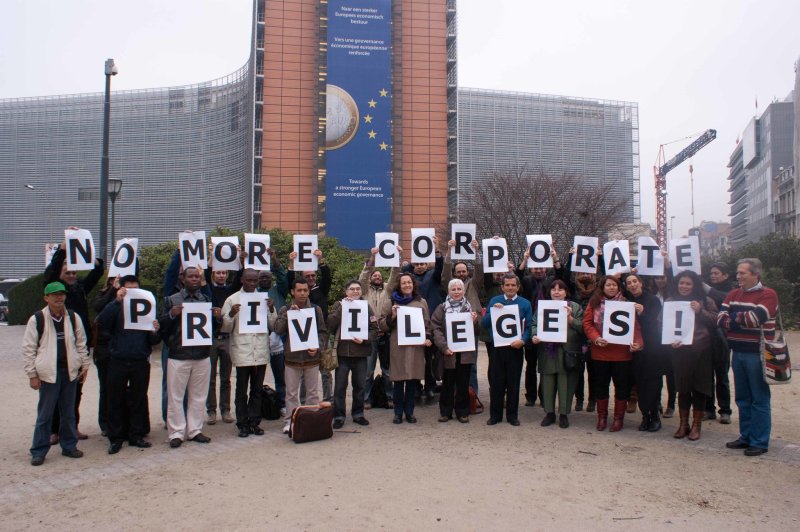
One of the most remarkable recent developments in international law is the exponential growth of International Investment Agreements (IIAs). An IIA is a treaty between countries to deal with issues concerning the protection, promotion and liberalization of cross-border investments. The most common types of IIAs are standalone Bilateral Investment Treaties (BITs) and Free Trade Agreements (FTAs) that contain investment chapters.
Although not precisely defined, a BIT is a legally binding agreement between two countries that establishes reciprocal protection and promotion of investments in both countries. The United Nations Conference on Trade and Development (UNCTAD) defines BITs as “agreements between two countries for the reciprocal encouragement, promotion and protection of investments in each other’s territories by companies based in either country.” The countries signing BITs com¬mit themselves to following specific standards on the treatment of foreign investments within their jurisdiction. If there is a breach of such commitments, BITs provide expansive procedures for the resolution of disputes.
It is fair to say that BITs have emerged as the primary source of international investment law to protect and promote cross-border investment flows. The first BIT was signed between Germany and Pakistan in 1959. Today, there are more than 3,000 BITs in existence globally, with the great majority having been concluded since 1990. Almost every country in the world has signed at least one BIT.
These treaties originated from the desire of capital-exporting developed countries to seek protection for investors and their investments in capital-importing developing countries. However, the underlying interests and power relations have changed considerably in recent years due to the rise of South-South Foreign Direct Investment (FDI) flows. A num¬ber of developing countries, especially the BRICS – Brazil, Russia, In¬dia, China and South Africa – are increasingly emerging as important outward investors. The number of BITs between developing countries has grown remarkably since 2004. With the changing pattern of global investment flows, the landscape of BITs is quickly evolving.
Paradoxically, it seems that the current BIT regime is at a crossroads, in spite of the rapid proliferation of treaties in recent years. There are signs of growing unease with the current regime across countries and regions. To a large extent, this unease has arisen due to frequent use of investor-state dispute settlement (ISDS) mechanisms under BITs, which allow investors to directly sue host state governments before international arbitral tribunals for alleged violations of treaty provisions.
The growing number of investor claims against sovereign states challenging a wide array of public policy decisions and regulatory measures has evoked deep concerns about the potential costs associated with investment treaties. The vague terms (such as ‘fair and equitable treatment,’ ‘indirect expropriation’ and ‘umbrella clause’) and other ambiguities can result in expansive interpretations by arbitral tribunals, leading to substantial monetary claims by foreign investors while unduly restricting regulatory space in the form of ‘regulatory chill.’ The risk of regulatory chill is very real, as a wide range of policy and regulatory measures (from taxation to the plain packaging of tobacco products to the disposal of hazardous waste) have all been challenged by foreign investors in the recent past.
The increasing use of ISDS mechanisms also highlights the lack of balance between public rights and private interests under the framework of a BIT. The current BITs regime has failed to address the balance of rights and responsibilities of foreign investors as it offers numerous legal rights for investors without requiring corresponding responsibilities for them. In both policy and academic circles, legitimate questions are being raised on the cost and procedure of arbitration, expansive interpretations by arbitral tribunals and the inconsistency of awards.
Both developed and developing countries are paying far greater attention today to the scope of their treaty obligations and, now more than ever before, are seeking a better balance between investor rights and the right to regulate in the public interest. Increasingly the existing treaty regime is considered irrelevant in terms of addressing emerging social, economic, environmental and developmental challenges, both at national and global levels.
There is hardly any empirical evidence to prove that BITs alone result in increased investment flows. At best, BITs could be considered as one factor among many in creating a favourable investment climate for foreign investors in a host country.
Therefore a number of countries have been revisiting their BITs program since the early 2000s. Some countries are clarifying the language used in BITs in order to bring uniformity and coherence in treaty interpretations while others are terminating their existing treaties in the wake of public outcry over arbitration notices served by foreign companies demanding billions of dollars in compensation for the alleged violation of BITs.
The decisions taken by these countries to roll back their BIT commitments represent a significant development and should be viewed in the much broader context of attempts made by other countries to revisit their BIT regime and to explore innovative policy solutions to tackle the problems posed by the current BIT regime, as well as to improve the governance of cross-border investment flows.
Contributed by Kavaljit Singh (Madhyam) and Burghard Ilge (Both Ends). Excerpt from Rethinking bilateral investment treaties.
last update: March 2017
ISDS case map
Click on the dots on the map to explore ISDS cases or look at the list below
Photo: Transnational Institute























